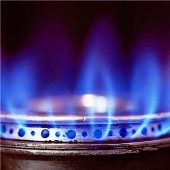 | « Back to article | Print this article |
 A high-powered committee headed by former finance secretary Ashok Chawla has opposed oil ministry's plan to subsidise costlier imported liquefied natural gas by making users of domestic natural gas pay more.
A high-powered committee headed by former finance secretary Ashok Chawla has opposed oil ministry's plan to subsidise costlier imported liquefied natural gas by making users of domestic natural gas pay more.
The committee on allocation of natural resources said in its draft report said, "In the ideal scenario, a gas pooling arrangement, with a view to mitigate price volatility is not recommended".
The oil ministry is pushing for pooling or averaging out the price of domestic natural gas and imported LNG so that the high cost imported fuel contracted by Petronet LNG finds users.
"Prices should be determined by a market-driven mechanism, with gas being eventually allocated to its most optimal use, based on the specific circumstance of each sector," it said.
The panel called for market-determined pricing of natural gas and recommended the use of gas as an industrial fuel and for cooking and transport purposes instead of burning it in power and fertiliser plants.
Subsidised gas should not be provided as an input (feedstock) for power plants since most of the output (electricity) is sold at market price.
The committee felt it was not clear if input subsidies have actually led to lower market prices of power.
"In the short-term, gas does not offer any significant cost advantages for base load power generation compared to coal," whose reserves are abundant in India, the report said.
The primary goal should be to supply power to the 40 per cent of the country that still does not receive electricity and who are highly cost sensitive, it said.
The report said it would be preferable to continue using cheaper coal for base-load power generation to reduce the subsidy impact, it said.
"It may be better to discourage new gas-fired power plants, other than those already committed," it said.
Stating the intent of the government is also to move fertilisers to a consumer-based subsidy system instead of subsidising the input cost, the committee said subsidising gas as an input for urea plants was a weak strategy.
Power and fertiliser currently consume nearly 75 per cent of the total gas available in the country.
With a whopping Rs 2.7 lakh crore (Rs 2.7 trillion) being spent on oil imports in 2009-10, the committee felt, "It may be better to use gas to substitute for oil where possible, rather than coal."
While base load power plants will be willing to switch to gas only if it is priced at a maximum of $5.82 per million British thermal units, industry users like refineries and petrochemical plants would be willing to switch to gas up to fairly high gas prices ($17-18 per mmBtu).
"Moreover, gas would be a cheaper option even for transport and cooking fuels if they are unsubsidised," it said.
The committee recommended 'moving gas to market pricing.'
"The freedom that currently exists in the New Exploration Licensing Policy provisions for contractors to determine the prices of their gas produce should be employed to move toward free pricing of gas from NELP fields," it said.